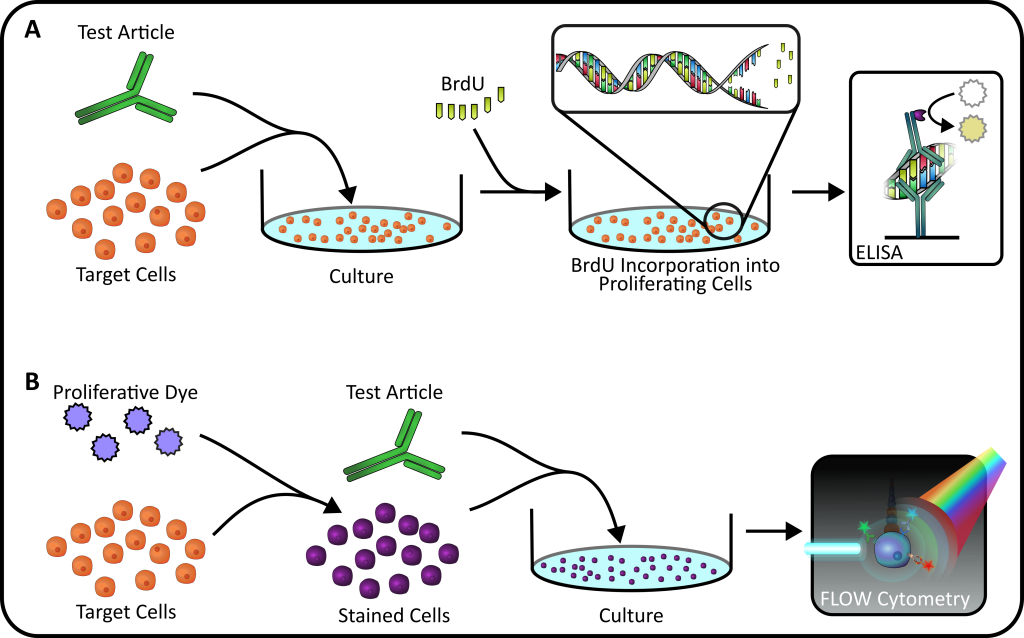Background: The health of multicellular organisms relies upon the finely tuned orchestration of cell death and proliferation. These processes are responsible for maintaining proper organ and tissue size and function. Cancer is a dysregulation of normal cell death and proliferation resulting in an unchecked system resulting in decreased cell death and increased proliferation within the tumor microenvironment. Many of today’s oncology therapeutics target those pathways that specifically regulate cellular proliferation or cell death in an effort to selectively mitigate cancer growth.
Principle: The basic in vitro proliferation assay can use either cancer cell lines or normal cells which exhibit the phenotypic expression of the particular cancer under investigation. The cells are co-cultured with the potential therapeutic and the resulting cells analyzed for changes in proliferative and viability response compared to appropriate controls. Proliferation readouts utilize 5-bromo-2’-deoxyuridine (BrdU) incorporation into cellular DNA or in some systems measured by flow cytometry of dividing cells containing CFSE or CTV stains.

References:
Related Assays:
Copyright © 2021. All rights reserved.